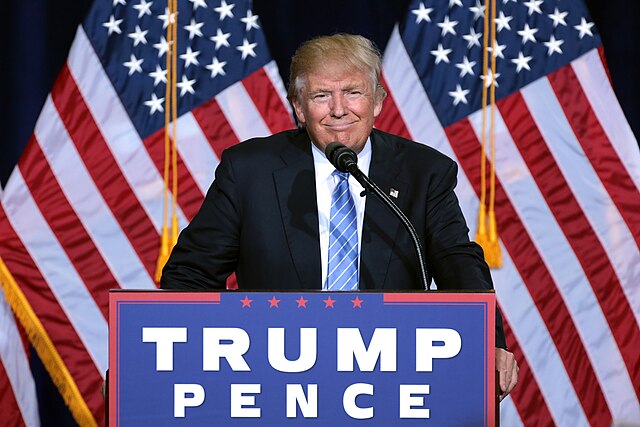The Limits of Presidential Immunity in the Case of Donald Trump
Presidential immunity does not protect former President Donald Trump from prosecution. Apart from recent discussions of presidential immunity, this topic has also been relevant concerning the impeachments of former Presidents Andrew Johnson and Richard Nixon. In 1867, the Supreme Court concluded that it held “no jurisdiction… to enjoin the President in the performance of his official duties.” Some argue that this decision gives the President of the United States inherent immunity from matters that other citizens would be prosecuted for. According to this view, the President has a unique role, and thus the law must conform to embrace the complexities of the executive office and the risks presidents must take. Others argue that this mindset unfairly places the President above the law in comparison to other citizens, unjustly safeguarding them from prosecution.
Trump’s lawyers strictly embody the former set of beliefs. While presidential immunity was a topic of concern for former Presidents Johnson and Nixon, the issue is particularly pressing for Trump, who boasts a longer list of potential felonies than all of his predecessors combined. Trump is being tried on several fronts: civil fraud, retaining classified documents, election interference, and accepting hush money, along with other crimes concerning the January 6th insurrection. A separate election case is also in progress regarding Trump’s illegal attempts to alter election results in Fulton County, Georgia.
In their defense, Trump’s attorneys claim that “without immunity from criminal prosecution, the Presidency as we know it will cease to exist.” Firstly, this argument is historically incorrect, given presidential immunity did not arise until the Johnson administration. Furthermore, the term was solely used from a judicial standpoint during the prosecution of Richard Nixon. As such, the office of the presidency stood for decades prior to the invention of presidential immunity, and thus it is not crucial to the functioning of the office. In addition, the civil fraud, classified documents, and hush money cases all involve Trump committing crimes when he was not serving as President. As a result, Trump is not protected by presidential immunity in these circumstances. Judge Tanya Chutkan elaborated on this point, stating that the Presidency “does not confer a lifelong get-out-of-jail-free card.” The Court of Appeals for the DC Circuit Panel expands on this idea, in summary writing that Trump must accept the transfer from ‘president’ to ‘citizen.’ In doing so, he relinquishes the presidential immunity that shielded his power in the executive office. Presidential immunity does not protect Trump from his current convictions; he was solely a citizen at the time of the charges and cannot manipulate the leverage of the presidency to his advantage.
Importantly, presidential immunity does not explicitly protect the President from prosecution for criminal lawsuits. Amy Davidson Sorkin writes that “presidential criminal immunity is a surprisingly tricky area and one that the Court has never fully adjudicated.” The ambiguity of this matter factors into Trump’s attempts to assert presidential immunity. With the possibility of further sentencing looming, Trump exploits presidential immunity as a legal mechanism for defending his illicit behavior. In this circumstance, presidential immunity is a faulty defense for Trump, as the D.C. Circuit established that there is “no parallel blanket immunity from criminal charges arising from any assertedly official action.” Therefore, the court’s conclusions demonstrate that presidential immunity does not apply anymore to Trump. The severity of Trump’s crimes is so intense that presidential immunity does not lawfully defend his treasonous and seditious actions.
The overarching significance of these discussions is that the impacts of presidential immunity in prosecuting Trump are intertwined with the success of his campaign. If Trump’s claims about presidential immunity are rejected and he faces sentencing, it could hinder or entirely impede his chances in the upcoming 2024 election. Sentencing Trump would adhere to America’s democratic principles, and reinforce the opinions of those who are generally critical of Trump and who view his behavior as innately anti-democratic. Conversely, sentencing Trump for his crimes would do little but ignite his core fanbase. Trump supporters are generally undeterred by their former President’s indictments and felony convictions; this legal chaos only fuels their hatred for any systems or people standing in the way of Trump’s renewed effort to take back the White House. Regardless, a February 2024 PBS study found that “about two-thirds of US adults do not think former President Trump should have immunity from criminal prosecution,” indicating that a vast majority of Americans interpret Trump’s claims for presidential immunity as entirely baseless. This statistic provides hope that the American judicial system will align itself with the beliefs of the people. Trump’s declaration of presidential immunity must be rejected: anything otherwise would provide legal defense for his violent and anti-democratic behaviors.

